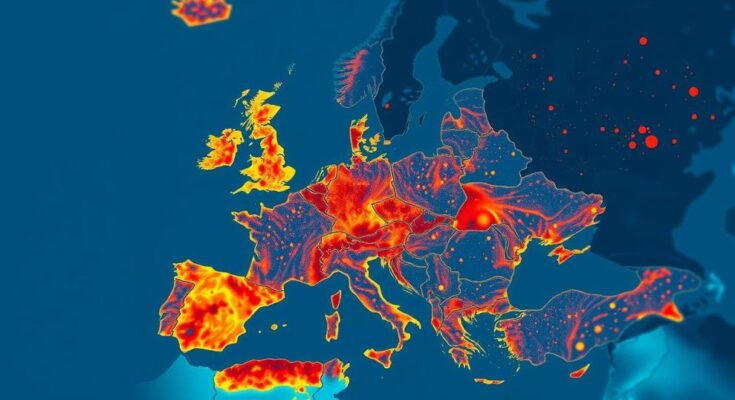Global heating is a crucial social challenge, requiring the EU to act responsibly in mitigating its impacts. COP29, held in Azerbaijan, underscored the necessity of robust finance for climate action. Notably, recent assessments reveal that the EU has substantially exceeded its climate budget, raising serious concerns regarding climate justice and equity for vulnerable communities globally. Urging stronger, more equitable policies is essential to address these disparities effectively.
Global heating represents a critical social issue demanding urgent attention from the European Union (EU), which possesses the responsibility to mitigate its effects. The recent COP29 gathering in Azerbaijan highlights the global call for financial frameworks aimed at climate change adaptation and mitigation. Unfortunately, despite ambitious policies targeting a 55% reduction in net emissions by 2030, new evaluations indicate that the EU significantly exceeds its fair share of the global climate budget.
The implications of the EU’s emissions history are grave: across various scenarios, it has utilized or will exhaust its carbon budget within years, disregarding principles of climate justice that necessitate fair distribution of responsibilities. As climate impacts escalate, the EU must align its policies with social and ecological equity, addressing the needs of vulnerable populations disproportionately affected by climate change.
Age-old inequalities underpinning climate negotiations demand recognition; wealthier nations such as the EU continue to contribute disproportionately to greenhouse gas emissions while being the least affected by the repercussions. The present climate discourse must evolve to treat climate change as an existential social injustice, integrating climate justice into the core of discussions, especially at prominent international forums like COP29. Emphasizing ambitious targets based on ecological limits alongside addressing historical responsibilities is paramount for real progress.
The call for heightened ambition and accountability reflects the necessity of acknowledging historical climate debts, thereby ensuring that nations of the Global North contribute substantively to global climate action. In doing so, a genuine commitment to a fair and equitable approach to climate resilience will emerge, ultimately generating a robust foundation for the climate justice movement.
The phenomenon of global heating has become entrenched as a social issue, manifesting through climate-related disruptions globally. The United Nations Convention on Climate Change (COP29) serves as a vital platform for countries to collaborate on essential financial frameworks necessary for tackling climate change. These agreements aim to assuage the adverse impacts of climate change, particularly under the Paris Agreement’s mandates, which include stringent limits on temperature rise.
In summary, the European Union’s current climate strategies are inadequate when measured against its historical emissions and global responsibilities. As climate justice continues to gain prominence as a necessary framework for action, the EU must reformulate its policies to meet both ecological and moral obligations. The pursuit of equitable climate solutions must encompass a wide-ranging approach that prioritizes support for the most vulnerable populations around the globe, aligning financial and political commitments to serve both mitigation and adaptation affairs.
Original Source: theconversation.com




